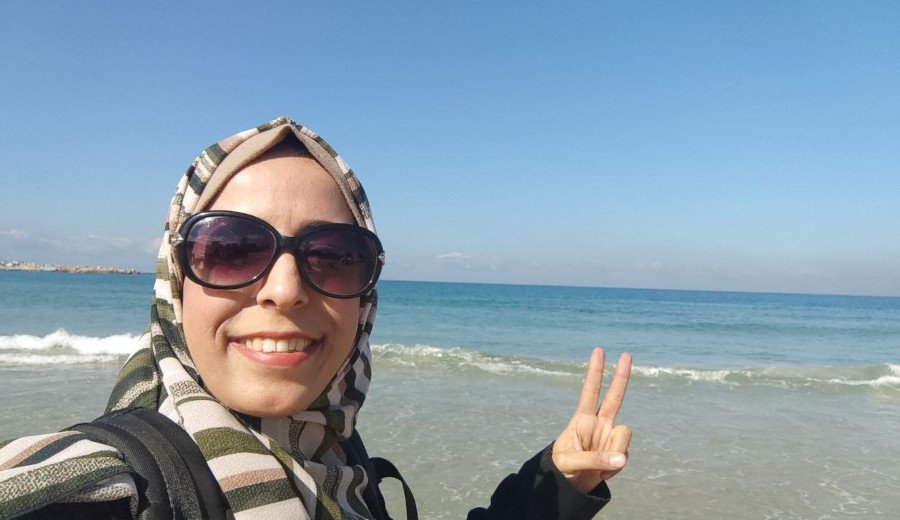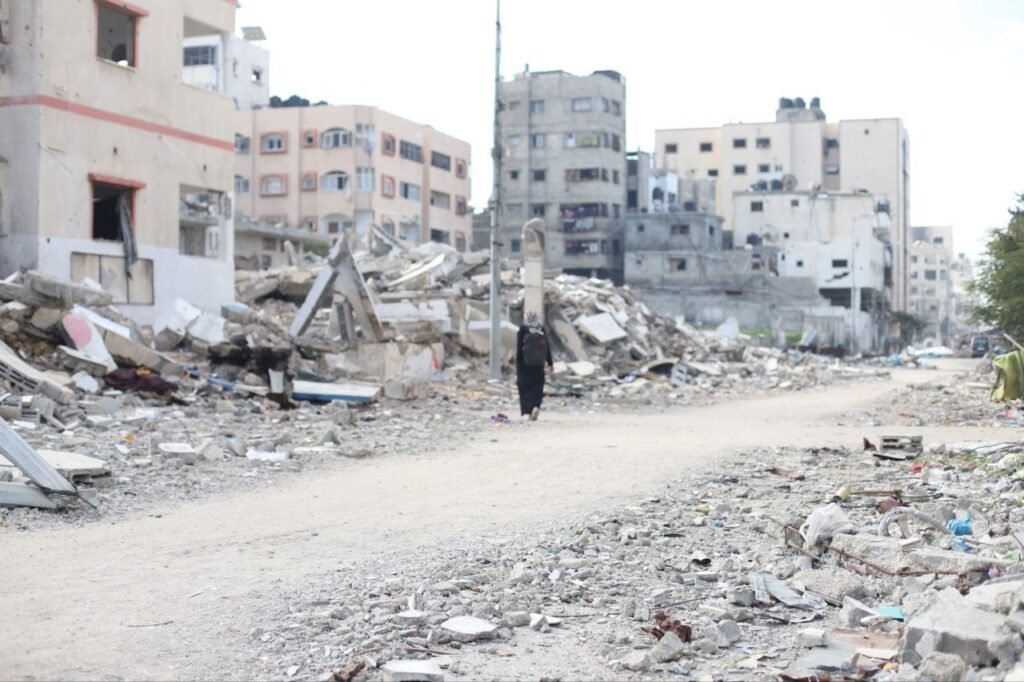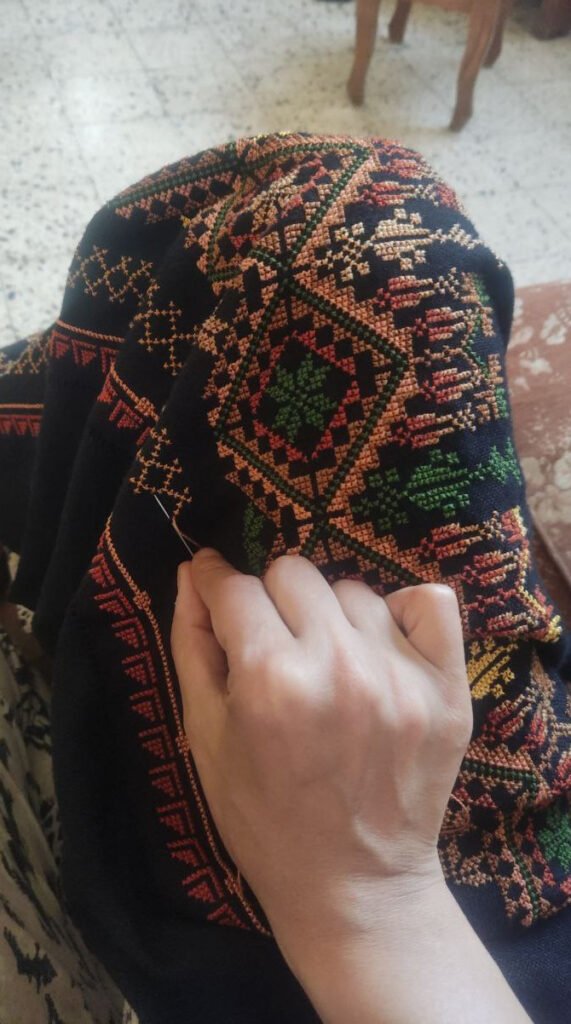“We have miraculously survived”: Gaza ceasefire

Story and photo by Fawzya Alshami

Fawzya Alshami is a journalist based in northern Gaza. In May last year she wrote about living under Israel’s military attack since the conflict began in October 2023. In the months that followed, she had to be evacuated multiple times after her home was bombed. Now, after the announcement of a ceasefire, she shares her hopes for the future, and describes how she coped living through the war.
Today I feel free. I can breathe again. Yesterday, for the first time in 470 days of war, I went to the sea. I felt like I was born again. Indeed, I’ve miraculously survived this war.
These last few months have been difficult. Although food has been available for a month, its price in the market is still a bit high. Access to water is still difficult. We don’t have water tanks in the house so my brothers have to go far to fetch it. Electricity is not available at all. Every day we have to travel to charge a small battery to have light. I walk about an hour and a half to reach a place with electricity and internet so I can continue my studies via Zoom.
Time in the Gaza Strip has been measured by the constant sounds of drones, rockets and missiles. There has been no absolute calm — the sound of missiles has become familiar to us. We couldn’t leave the house because of the constant gunfire from the quadcopter planes, shooting at anything that moved in the streets.
In May last year, my home was bombed. Tanks had been firing shells intensely that day, and we could even hear the sound of the tank moving. The bombing shattered all the glass windows. There was no glass left anywhere, but we would sit in a safe room and put our hands over our ears so we would not hear the terrifying sounds.


The streets in Gaza are destroyed and polluted. People walk the streets and talk to themselves. Here, no one has a habitable home.
Nights in Gaza are unlike any others in the world. They have been lit by bombing, fire, and the flames of rockets. It has been a nightmare that haunts the hearts of the people of the Gaza Strip, as they realise that every night brings loss, pain, and torment. It was worse during the night than during the day as we couldn’t sleep from the sounds of missiles.
Since October last year, I’ve been studying for a Master’s in Journalism and New Media through the Jordan Media Institute. I chose to study journalism because I have a passion for storytelling and a desire to shed light on important social issues, especially those related to women’s rights and environmental challenges. I believe journalism can provide a platform to amplify marginalised voices and drive meaningful change, by presenting the truth to the public.
The frequent wars in Gaza made me realise the crucial role journalism plays in documenting people’s suffering and sharing what is happening to them with the world. Journalism helps uncover truths that might otherwise be buried. It gives a voice to victims, and highlights the violations they endure.

The international coverage of Gaza has often been criticised for being inconsistent. It is frequently shaped by political narratives, and focuses heavily on what is happening during times of major conflict while neglecting the ongoing humanitarian crisis in periods of relative calm. While some outlets provide in-depth reporting, others tend to oversimplify the complexities of life in Gaza, reducing it to a conflict zone rather than portraying the full scope of people’s experiences, resilience, and daily struggles.
Journalists covering Gaza should focus more on humanising the stories of its people — beyond the headlines of war and destruction. There is a need for more storytelling that highlights personal narratives, the strength of communities, and the efforts of individuals striving to build a better future despite the hardships. More attention should be given to mental health, the impact of prolonged blockades on education and healthcare, and the voices of women and youth, who are often underrepresented in mainstream coverage.
Coping emotionally and mentally with war is incredibly challenging, especially when it becomes a recurring reality. The constant exposure to loss, fear, and uncertainty can take a heavy toll on mental health. However, over time, I’ve developed certain coping mechanisms to help me navigate this.

One of the most important ways I cope is by staying connected with my family, friends, and colleagues. Talking about my feelings, even when it’s difficult, helps process the trauma and relieve the sense of isolation that war often brings. I also engage in creative activities, such as writing and designing, which serve as a therapeutic escape. Expressing emotions through storytelling or visual art lets me channel my thoughts and experiences in a constructive way, giving me a sense of purpose amid the chaos.
I have been embroidering since 2005 — it’s part of my heritage. This shawl that I embroidered will be mine to wear as soon as soon as the war ends and my sisters from the southern Gaza Strip arrive — which I hope will happen soon. In the south, things have been much better than here, but there the humanitarian conditions are difficult because a large part of the population is displaced, and they are now living in tents on the seashore.
When the war ends, I hope to travel to Jordan for a year, to finish my studies. Today, I am preparing a press report on the feelings of Gazan people about the ceasefire. For my part, I feel both full of joy for the end of the bloodshed in Gaza, and full of sadness for those souls that did not survive. I hope that one day Gaza will know lasting security and sustainable peace.

READ MORE
